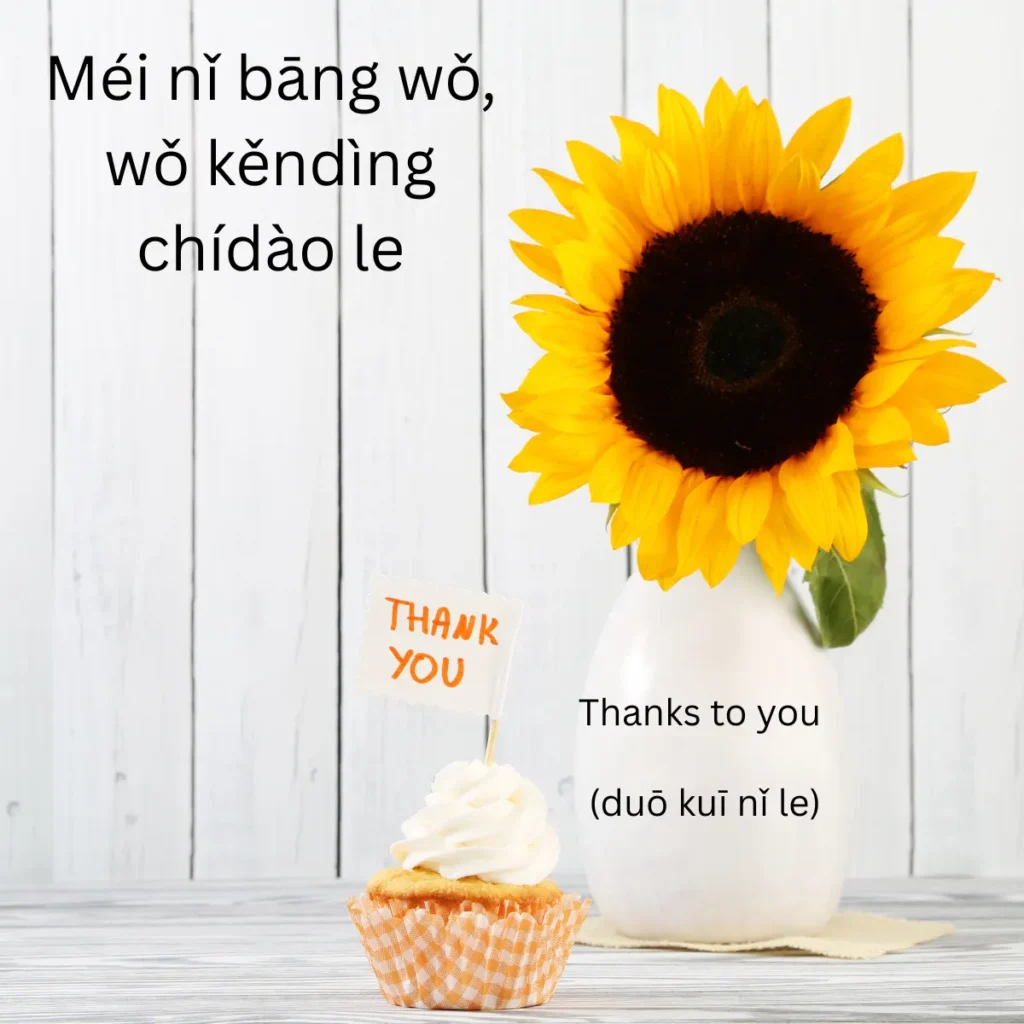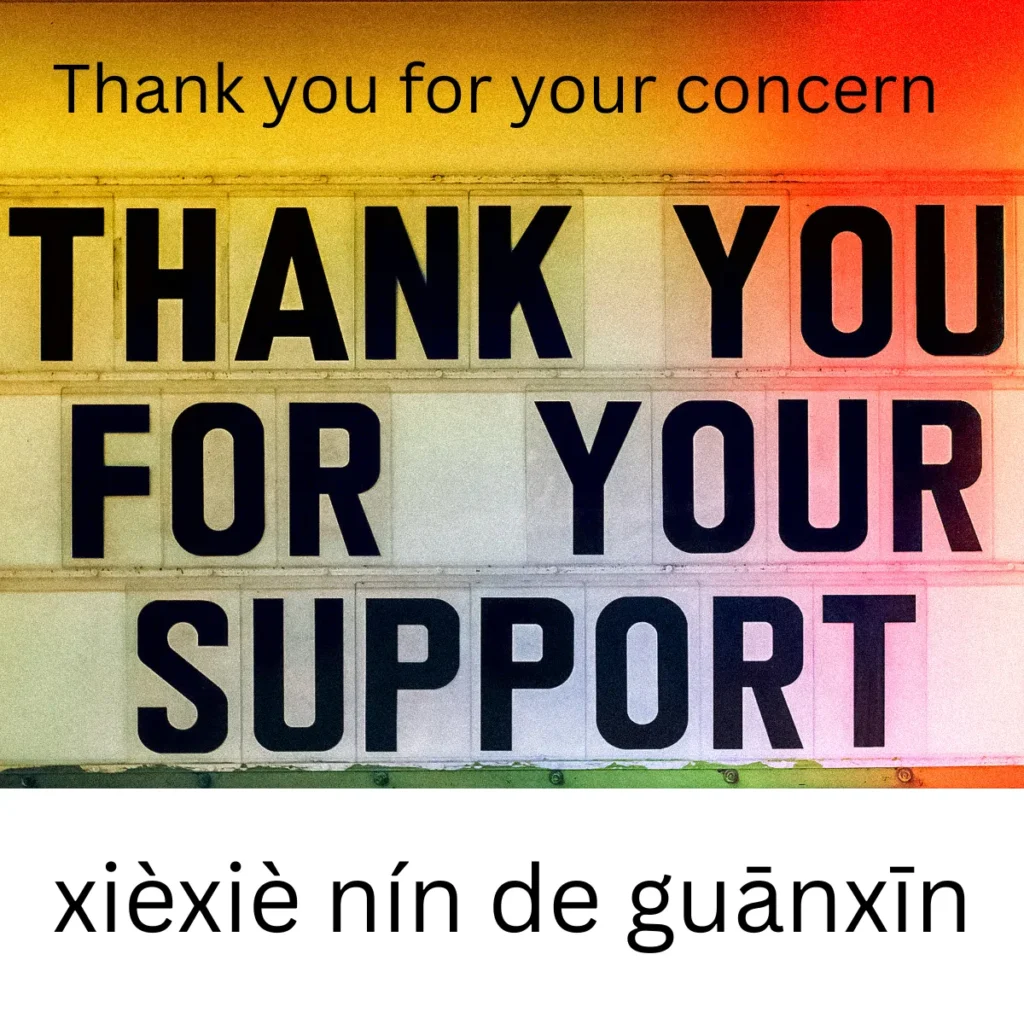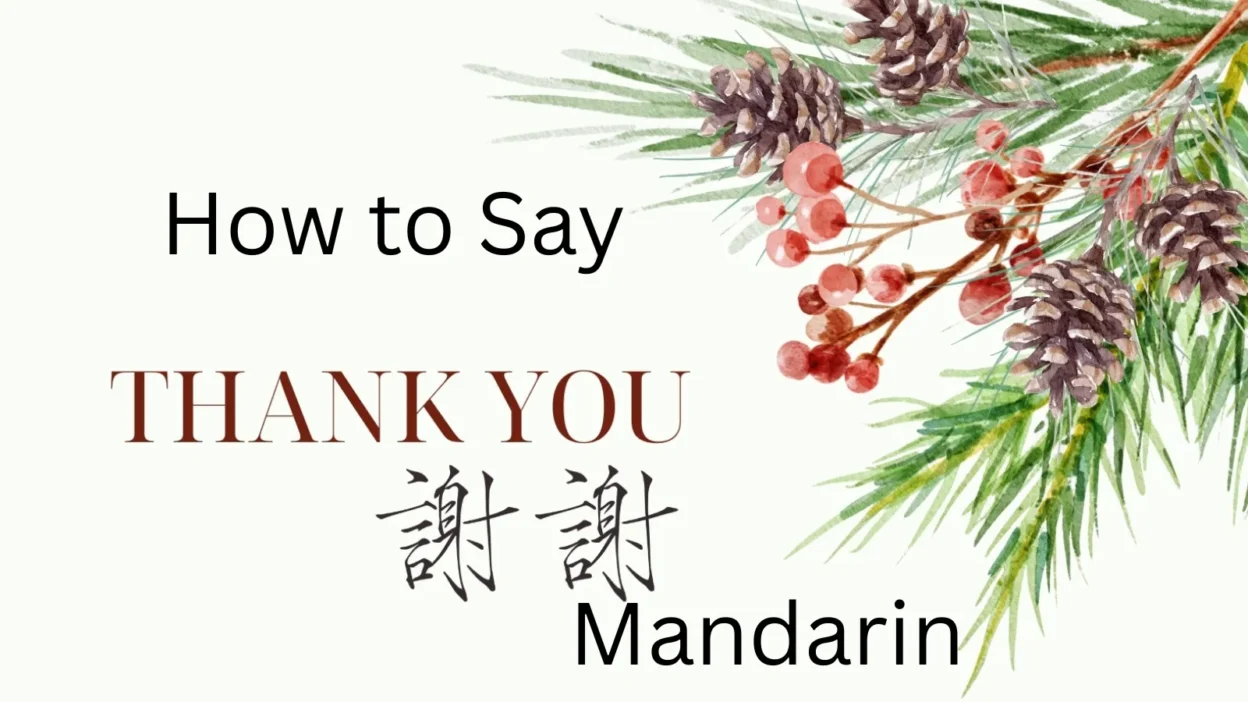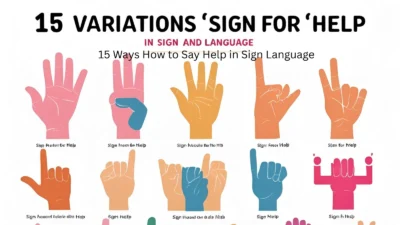How to Say Thank You in Mandarin is one of the most important phrases you can learn when starting the language. Gratitude plays a big role in Chinese culture, and knowing how to say it properly will help you make a great impression.
In this guide, we’ll cover how to say thank you in Mandarin in both formal and casual situations, along with pronunciation tips to sound more natural.
Learning how to say thank you in Mandarin will make your interactions with Mandarin speakers warmer and more respectful. It’s a simple expression that can go a long way in building trust and positive relationships.
Thank you in Mandarin:
Let’s explore 15 ways to say thank you in Mandarin, complete with dialogue examples and cultural or historical context so you can use them naturally and confidently.
1. 谢谢 (xièxiè) — Thank you
Origin:
This is the most common way to say “thank you” in Mandarin. The character 谢 means “to thank,” and doubling it adds politeness.
Example:
👤 User A: 这是给你的礼物。(Zhè shì gěi nǐ de lǐwù.) — This is a gift for you.
👤 User B: 谢谢你!(Xièxiè nǐ!) — Thank you!
Use: Universal and polite; used in all everyday situations.
2. 多谢 (duō xiè) — Many thanks

Origin:
Literally means “many thanks” and is a bit more expressive than 谢谢.
Example:
👤 User A: 我帮你完成了报告。(Wǒ bāng nǐ wánchéng le bàogào.) — I finished your report.
👤 User B: 哇,多谢你啊!(Wā, duō xiè nǐ a!) — Wow, many thanks!
Use: Slightly more heartfelt than 谢谢; casual or semi-formal.
3. 非常感谢 (fēicháng gǎnxiè) — Thank you very much
Origin:
Combines 非常 (“very”) and 感谢 (“to feel gratitude”) for a strong formal thank you.
Example:
👤 User A: 我给你安排了面试时间。(Wǒ gěi nǐ ānpái le miànshì shíjiān.) — I scheduled your interview.
👤 User B: 非常感谢您的帮助!(Fēicháng gǎnxiè nín de bāngzhù!) — Thank you very much for your help!
Use: Formal and respectful; ideal for emails or official situations.
4. 谢谢你 (xièxiè nǐ) — Thank you (with “you”)
Origin:
Adds the pronoun “you” to emphasize who you’re thanking.
Example:
👤 User A: 我今天替你买了午饭。(Wǒ jīntiān tì nǐ mǎile wǔfàn.) — I bought you lunch.
👤 User B: 真的吗?谢谢你!(Zhēn de ma? Xièxiè nǐ!) — Really? Thank you!
Use: Polite and personal; suitable for one-on-one conversations.
5. 谢谢大家 (xièxiè dàjiā) — Thank you, everyone

Origin:
Used in speeches, meetings, or group settings. 大家 means “everyone.”
Example:
👤 User A: 谢谢大家今天的出席!(Xièxiè dàjiā jīntiān de chūxí!) — Thank you all for attending today!
👤 Crowd: 不客气!(Bú kèqì!) — You’re welcome!
Use: Formal or semi-formal group settings.
6. 感激不尽 (gǎnjī bùjìn) — I am endlessly grateful
Origin:
A poetic, formal expression used in writing or deep appreciation.
Example:
👤 User A: 我出院那天你一直照顾我。(Wǒ chūyuàn nà tiān nǐ yīzhí zhàogù wǒ.) — You took care of me the day I was discharged.
👤 User B: 没事的。
👤 User A: 我感激不尽。(Wǒ gǎnjī bùjìn.) — I’m truly grateful beyond words.
Use: Formal, literary, or emotional situations.
7. 太感谢了 (tài gǎnxiè le) — Thank you so much
Origin:
Adds “too” or “so” (太) for intensity.
Example:
👤 User A: 我替你交了作业。(Wǒ tì nǐ jiāo le zuòyè.) — I submitted your homework.
👤 User B: 太感谢你了!(Tài gǎnxiè nǐ le!) — Thanks so much!
Use: Friendly or casual with emotional tone.
8. 真谢谢你 (zhēn xièxiè nǐ) — Really, thank you
Origin:
Adding 真 (“really”) emphasizes sincerity.
Example:
👤 User A: 我帮你订好了机票。(Wǒ bāng nǐ dìng hǎo le jīpiào.) — I booked your ticket.
👤 User B: 真谢谢你!(Zhēn xièxiè nǐ!) — Really, thank you!
Use: Sincere and informal.
9. 多亏你了 (duō kuī nǐ le) — Thanks to you

Origin:
多亏 means “thanks to” or “fortunately because of,” often paired with gratitude.
Example:
👤 User A: 没你帮我,我肯定迟到了。(Méi nǐ bāng wǒ, wǒ kěndìng chídào le.) — Without your help, I’d be late.
👤 User B: 多亏你了!(Duō kuī nǐ le!) — It’s all thanks to you!
Use: Grateful acknowledgment in spoken language.
10. 辛苦了 (xīn kǔ le) — Thank you for your hard work
Origin:
Literally “you’ve worked hard.” Common in workplaces and group efforts.
Example:
👤 User A: 老师,这些资料整理好了。(Lǎoshī, zhèxiē zīliào zhěnglǐ hǎo le.) — Teacher, I organized the materials.
👤 User B: 辛苦了!(Xīn kǔ le!) — Thank you for your effort!
Use: Respectful; often used by supervisors, teachers, or colleagues.
11. 麻烦你了 (máfan nǐ le) — Sorry to trouble you (thank you implied)
Origin:
Polite Chinese expression implying gratitude for someone’s effort.
Example:
👤 User A: 我替你发邮件了。(Wǒ tì nǐ fā yóujiàn le.) — I sent the email for you.
👤 User B: 哎呀,麻烦你了!(Āiyā, máfan nǐ le!) — Ah, sorry to trouble you (thanks a lot)!
Use: Polite way to acknowledge someone doing you a favor.
12. 谢谢您的关心 (xièxiè nín de guānxīn) — Thank you for your concern

Origin:
Used when someone checks on your well-being. 您 is respectful “you.”
Example:
👤 User A: 你最近身体好吗?(Nǐ zuìjìn shēntǐ hǎo ma?) — How’s your health lately?
👤 User B: 谢谢您的关心。(Xièxiè nín de guānxīn.) — Thank you for your concern.
Use: Formal or respectful social setting.
13. 感谢您的支持 (gǎnxiè nín de zhīchí) — Thank you for your support
Origin:
Common in speeches, formal writing, and customer service.
Example:
👤 User A (host): 感谢您的支持与信任。(Gǎnxiè nín de zhīchí yǔ xìnrèn.) — Thank you for your support and trust.
👤 User B: 我们会继续支持你。(Wǒmen huì jìxù zhīchí nǐ.) — We’ll keep supporting you.
Use: Formal and professional contexts.
14. 感恩 (gǎn’ēn) — Grateful / I feel thankful
Origin:
Used in spiritual or emotional expressions. 感 means “feel,” 恩 means “grace” or “favor.”
Example:
👤 User A: 这些年你一直照顾我。(Zhèxiē nián nǐ yīzhí zhàogù wǒ.) — You’ve looked after me all these years.
👤 User B: 我心中充满感恩。(Wǒ xīnzhōng chōngmǎn gǎn’ēn.) — My heart is full of gratitude.
Use: Deep, emotional, spiritual.
15. 谢了 (xiè le) — Thanks (informal)
Origin:
A shortened, casual form of 谢谢.
Example:
👤 User A: 我顺便带了咖啡。(Wǒ shùnbiàn dài le kāfēi.) — I brought coffee.
👤 User B: 哦,谢了!(Ò, xiè le!) — Oh, thanks!
Use: Very casual; used among close friends.
FAQs:
- How do you say thank you in Mandarin Chinese?
The most common way is “谢谢” (xièxie) — it’s simple, polite, and used in all kinds of situations. - What is the difference between 谢谢 (xièxie) and 谢谢你 (xièxie nǐ)?
Both mean “thank you,” but 谢谢你 sounds more personal — it directly thanks you for something. - How do you pronounce 谢谢 in Mandarin?
It’s pronounced like “shieh-shieh” in English. The tone falls then rises slightly (4th and neutral tone). - Is it okay to just say 谢谢 casually?
Yes! It’s the most versatile phrase — suitable for daily conversations, shopping, or thanking someone politely. - How do you say thank you very much in Chinese?
You can say 非常感谢 (fēicháng gǎnxiè) or 太谢谢了 (tài xièxie le) — both express deeper gratitude. - How do you respond when someone says 谢谢 to you?
You can reply with 不客气 (bú kèqi) meaning “you’re welcome,” or 没事 (méi shì) for a casual “no problem.” - What’s a formal way to say thank you in Mandarin?
Use 感激不尽 (gǎnjī bú jìn) or 承蒙关照 (chéngméng guānzhào) — both sound very polite and respectful. - Are there ways to thank someone for their effort in Mandarin?
Yes — say 辛苦了 (xīnkǔ le), which means “thank you for your hard work.” It’s common at workplaces or after teamwork. - Do people in China always say 谢谢?
While common, sometimes close friends or family might skip formal words like 谢谢 — context and tone matter more. - Can I use 谢谢 in writing or emails?
Absolutely. In formal writing, you can say 非常感谢您的帮助 (fēicháng gǎnxiè nín de bāngzhù) — “Thank you very much for your help.”
Conclusion:
Now that you’ve learned how to say thank you in Mandarin, you can express gratitude in a way that resonates with Chinese culture and etiquette. If you’re speaking to friends, colleagues, or strangers, this phrase will help you leave a polite and positive impression.
Keep practicing how to say thank you in Mandarin so it becomes second nature in your conversations. A simple thank you in someone’s native language can open doors, build connections, and make your interactions more meaningful.



